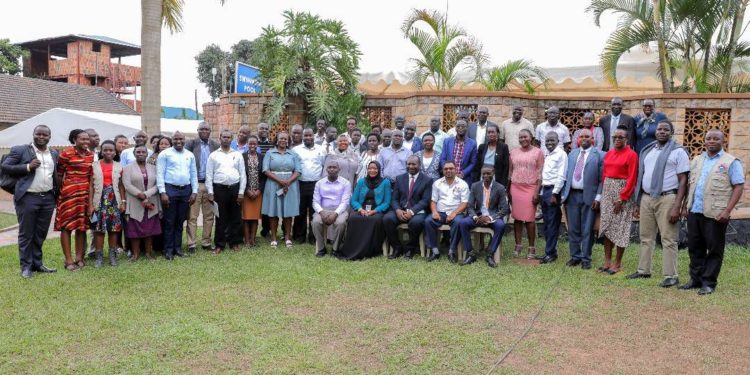The Ministry of Public Service has kicked off a validation exercise on costed service delivery standards in nine key service areas in local governments across the country. Costing service delivery is key in informing service recipients and providers about the cost of the specific service.
The 9 key service areas include; gender, Labor and Social development, health, education, and sports, water, and environment.
Others are; works and transport, lands, housing and urban development, agriculture, animal industry and fisheries, local economic development, and public service management and administration.
During a weeklong stakeholders engagement meeting to validate the costed service delivery standards, that ended on Friday at rider hotel in Mukono, the commissioner of human resource management, in charge of human resource policy and procedures department; Mr Patrick Muhereza who represented the Minister of Public Service Mr. Wilson Muruuli Mukasa said there is need to define and cement the level of service delivery to all parties.
“As we deliver Uganda to a middle-income status, it is critical that the level of service delivery is clearly defined and cemented to all the parties. This will translate into increased civic competence through a knowledge and lasting empowerment to demand for services that are due to the citizens at the known costs,” Muhereza said.

“Our citizens can only demand what is due to them in terms of services, when they know the costs and when they know the standards. Availability of costed services delivery standards will therefore increase the level of responsiveness, transparency, accountability uniformity in the delivery of services and equity in allocation of resources,” he added.
He said, there are a number of pertinent issues that could be done including embracing the developed home solutions and mainstreaming them into the day to day processes.
“It should not only be an issue of the national service delivery standards but even at individual level, we should have standards that we live by. Secondly, we need to disseminate the standards to facilitate the utilization. If we develop these standards and we don’t disseminate them, then they might not be of value that we are looking for,” he noted.
He called for a need to provide a platform for soliciting feedback from the service recipients and the providers as far as performance improvement is concerned.
He further expresses need to document any policy issues that can inform a policy agenda of government in addition to continuing to technically analyze the costed standards, provide constructive feedback to enable the ministry develop a document that will stand the test of time.









